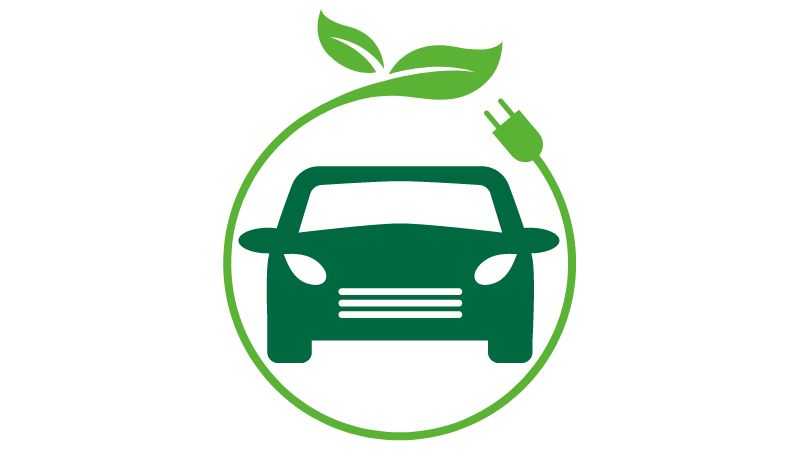What the Trump-Musk alliance means for EVs
As the Trump administration prepares to take office, its unusual alliance with Elon Musk is raising pressing questions about the future of the EV industry. For many stakeholders, this partnership represents a double-edged sword, in which opportunities for technological advancement collide with policies that could undermine the industry’s growth.
While Musk’s influence could steer innovation and deregulation in beneficial directions, Trump’s focus on tariffs, tax credit repeals, and hostility toward sustainability initiatives threatens to stall the EV market’s progress. This dynamic creates a precarious balance: the fate of the EV industry may depend on how automakers adapt to shifting policies and whether the private sector steps up to fill gaps left by federal rollbacks.
Tariffs could hurt EV supply chains
One of the first hurdles facing the EV market under the Trump administration lies in the supply chain. Trump has proposed imposing steep tariffs on imports, with rates as high as 60 percent on goods from China and 20 percent on imports from countries like Mexico and Canada. Since a significant portion of EV components are sourced from outside the U.S., these tariffs would sharply increase production costs.
The goal behind these tariffs is to encourage U.S. automakers to rely more on domestically sourced parts. However, it’s unclear whether manufacturers can shift their supply chains quickly or completely, leaving them to absorb higher costs in the meantime. Interestingly, Elon Musk, whose Tesla vehicles also depend on imported materials, has voiced support for these tariffs—a stance that may surprise those who expect him to oppose policies that could disrupt his own operations.
EV tax credits will take a hit
In another unexpected move, Elon Musk has voiced support for repealing federal tax credits for electric vehicles – even though 87 percent of EV buyers last year depended on those incentives to make their purchases affordable. For many automakers, particularly those already struggling to sell EVs, the loss of these credits could make attracting buyers even harder.
One explanation for Musk’s stance is that eliminating the tax credits would disproportionately affect newer, less established automakers, potentially strengthening Tesla’s dominant market position. However, Tesla is unlikely to escape unscathed, as higher costs for consumers would likely reduce demand for its own vehicles. Another possibility is that Musk sees Tesla as being ready to pivot toward other technologies, which could help offset potential losses in EV sales.
Autonomous tech could benefit
Tesla may be betting that its autonomous vehicle technologies could serve as a fallback if EV sales decline. Given Trump’s emphasis on deregulation during his previous term, the autonomous car market could be poised to benefit from similar activities in a new term. Faster approval processes for new designs and technologies, combined with the removal of bureaucratic obstacles, could accelerate Tesla’s ability to monetize its self-driving innovations, potentially offsetting the challenges posed by shrinking EV sales.
For the broader autonomous vehicle market, this deregulation-driven focus on innovation over oversight presents both opportunities and risks. While faster progress could bring breakthroughs in sensing and imaging technologies – helping self-driving cars “see” and “respond” more effectively – it also shifts the responsibility for ensuring safety onto the private sector. Companies will need to prove to consumers that autonomous vehicles are not just innovative but also reliable and safe.
Sustainability will suffer
Trump’s emphasis on deregulation will also likely mean a repeal of many laws, regulations, and federal programs that cover sustainability and green initiatives beyond EV tax credits. For example, the GOP has also discussed a potential rollback of programs like the National Electric Vehicle Infrastructure (NEVI), which could have far-reaching consequences for the development of renewable energy infrastructure. NEVI has been instrumental in funding the expansion of EV charging networks across the U.S. to make EV ownership more practical and accessible.
Without NEVI, the pace of deploying charging stations may slow significantly, particularly in rural and underserved areas. This would create gaps in infrastructure that could deter prospective EV buyers and stall the progress of transitioning to clean transportation solutions.
Beyond NEVI, this kind of widespread deprioritization of renewable energy initiatives could prevent companies that are developing EVs from securing funding and scaling their innovations. If investor confidence in the future of EVs drops, automakers may end up prioritizing traditional internal combustion engine vehicles to stay profitable. The effects may ripple through related industries as well, slowing advancements in battery technology, grid modernization, and renewable energy integration.
Each of these potential impacts could significantly delay the electrification of transportation, which is a key pillar in the U.S.’s efforts to combat climate change and meet global emissions reduction targets.
What’s next for EVs?
What lies ahead for EVs in the U.S. as federal support wanes? Without strong government backing, the nation risks losing its competitive edge in the global EV market. Policies that dismantle key incentives and sustainability programs could slow progress, but recovery isn’t out of reach. States like California are exploring ways to step in, and are considering new incentives to fill the gap left by federal rollbacks. Meanwhile, the private sector remains committed to sustainability, viewing it as a long-term investment despite short-term challenges.
The EV industry has weathered obstacles before, and with ongoing innovation and public interest, it’s reasonable to believe that EVs will become an increasingly common sight on the roads. The road ahead may be uneven, but the EV market is far from finished.
About the author

Boaz Mizrachi
Co-founder and CTO of Tactile Mobility (formerly MobiWize)
Also read: Understanding the Sense-of-Touch technology for safer driving
Subscribe & Stay Informed
Subscribe today for free and stay on top of latest developments in EV domain.






